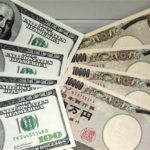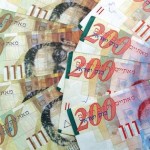On Thursday (in GMT terms) gold for delivery in December traded within the range of $1,339.2-$1,352.6. Futures closed at $1,341.2, rising 0.50% compared to Wednesday’s close. It has been the 143rd gain in the past 304 trading days and also a third consecutive one. The daily high has been the highest price level since July 12th. The commodity has pared its advance to 1.54% so far during the current month, after surging 8.53% in June.
On the Comex division of the New York Mercantile Exchange, gold futures for delivery in December were edging down 0.22% on Friday to trade at $1,338.2 per troy ounce. The precious metal went up as high as $1,350.7 during mid-Asian trade, while the current daily low was at $1,335.0 per troy ounce, recorded during the mid phase of the Asian trading session as well.
The US Dollar Index, a gauge reflecting the relative strength of the greenback against a basket of 6 other major currencies, was edging down 0.32% on the day at a level of 96.38, after going down as low as 96.20 earlier. The latter has been the lowest index level since July 15th. The gauge has trimmed its advance to 0.19% so far during the current month, following a 0.33% increase in June.
Today gold trading may be strongly influenced by the preliminary report on US Gross Domestic Product. The preliminary estimate of the US GDP probably pointed to an annualized rate of growth of 2.6% in the second quarter of the year, according to market expectations. If so, this would be the fastest annual rate of growth since the second quarter of 2015, when US economy grew at a final 3.9%. The final GDP estimate for Q1, reported on June 28th, pointed to an annual growth of 1.1%, a revision up compared to the second GDP estimate. In case the preliminary GDP estimate met or even outpaced expectations, this would certainly boost the US Dollar and mount selling pressure on gold, as it would spur risk appetite. The preliminary data is due out at 12:30 GMT.
Additionally, the monthly survey by Thomson Reuters and the University of Michigan may show that consumer confidence in the United States was lower in July from a month ago. The final reading of the corresponding index, which usually comes out two weeks after the preliminary data, probably came in at 90.5, up from a preliminary value of 89.5. In June the index stood at a final reading of 93.5, down from a preliminary value of 94.3. In case the final value for July outpaced the median forecast by analysts, this would have a moderate bullish effect on the US dollar and a moderate bearish effect on gold. The final reading is due out at 14:00 GMT.
Earlier on Friday gold received support after at its policy meeting Bank of Japan left the benchmark interest rate at -0.1%, while maintaining its stance to expand the monetary base at an annual rate of JPY 80 trillion. However, policy makers noted that the Banks annual exchange-traded equity funds purchase target will be raised to JPY 6 trillion.
“The bank will continue with “QQE with a Negative Interest Rate”, aiming to achieve the price stability target of 2 percent, as long as it is necessary for maintaining that target in a stable manner. It will examine the risks to economic activity and prices, and take additional easing measures in terms of three dimensions — quantity, quality and the interest rate — if it is judged necessary for achieving the price stability target”, as noted in BoJs July Statement.
“Due to considerable uncertainties over the outlook for prices against the background surrounding global financial markets, the bank will conduct a comprehensive assessment of the developments in economic activity and prices under “QQE and QQE with a Negative Interest Rate” as well as these policy effects at the next Monetary Policy Meeting.”
The yellow metal rose sharply on Wednesday, after the Federal Reserve decided to keep the target range for the federal funds rate intact at 0.25%-0.50%, in line with market expectations. Policy makers noted that labor market conditions improved, while near-term risks to US growth diminished, thus, implying that a rate hike in 2016 was still a possibility.
According to CME’s FedWatch Tool, as of July 28th, market players saw an 18.0% chance of a rate hike occurring at the Federal Reserve’s policy meeting in September, unchanged compared to the prior business day, and a 19.7% chance of a hike in November, also unchanged compared to the preceding day. As far as the December meeting is concerned, the probability of such a move was seen at 42.7% on July 28th, down from 46.5% in the preceding business day.
Meanwhile, silver futures for delivery in September were edging down 0.34% on the day to trade at $20.123 per troy ounce, after going down as low as $20.005 a troy ounce during the early phase of the European trading session.
Daily, Weekly and Monthly Pivot Levels
By employing the Camarilla calculation method, the daily levels of importance for gold are presented as follows:
R1 – $1,342.43
R2 – $1,343.66
R3 (Range Resistance – Sell) – $1,344.89
R4 (Long Breakout) – $1,348.57
R5 (Breakout Target 1) – $1,352.87
R6 (Breakout Target 2) – $1,354.62
S1 – $1,339.97
S2 – $1,338.74
S3 (Range Support – Buy) – $1,337.52
S4 (Short Breakout) – $1,333.83
S5 (Breakout Target 1) – $1,329.53
S6 (Breakout Target 2) – $1,327.78
By using the traditional method of calculation, the weekly levels of importance for gold are presented as follows:
Central Pivot Point – $1,324.47
R1 – $1,336.13
R2 – $1,349.17
R3 – $1,360.83
R4 – $1,372.50
S1 – $1,311.43
S2 – $1,299.77
S3 – $1,286.73
S4 – $1,273.70
In monthly terms, for the yellow metal we have the following pivots:
Central Pivot Point – $1,293.13
R1 – $1,380.87
R2 – $1,443.33
R3 – $1,531.07
R4 – $1,618.80
S1 – $1,230.67
S2 – $1,142.93
S3 – $1,080.47
S4 – $1,018.00





